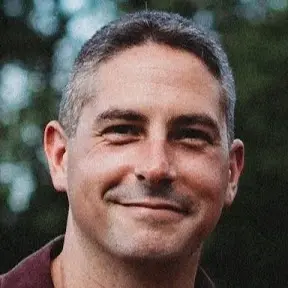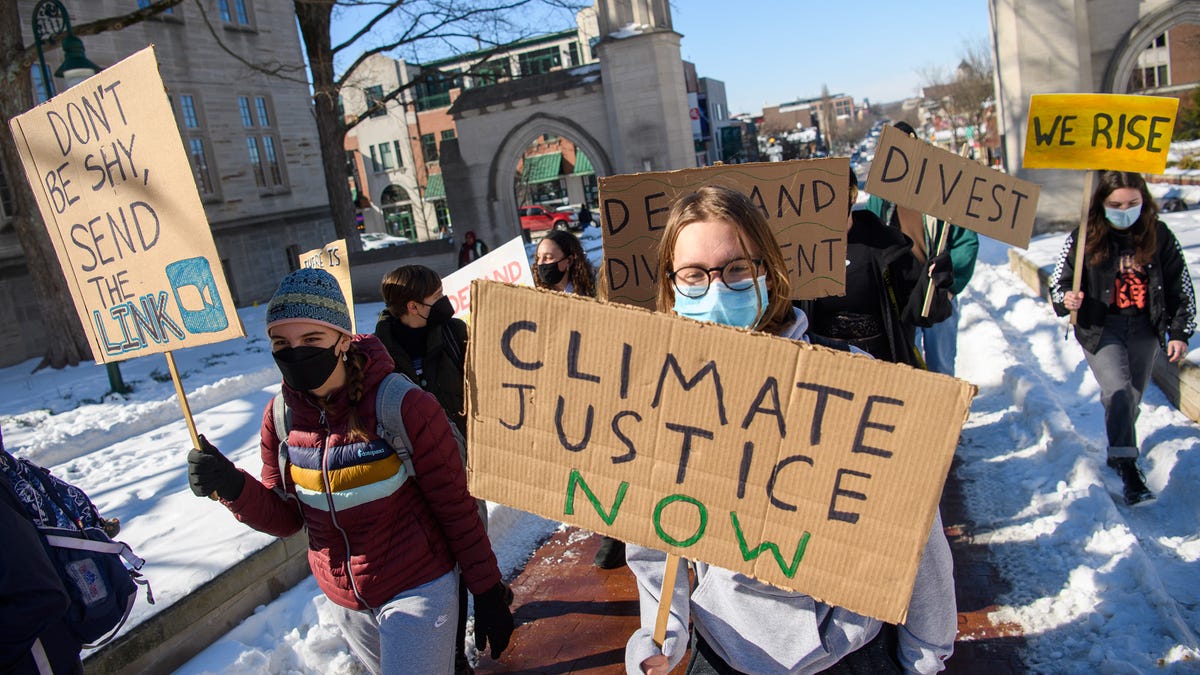Indiana’s legislature is getting involved in higher education. Your world view will likely inform whether you think that’s good or bad. I can’t think of many instances where it’s good.
Edit: This post isn’t an endorsement of the measure, there are more opposition articles below.
I’ll include quotes from the posted article, and include a couple of other related opposition articles.
Indeed, from what I’ve seen, not a single professor or administrator who testified on this bill admitted a lack of ideological diversity in higher education. That is troubling and, at best, reveals an unhealthy institutional blind spot. There are other perspectives.
Today, American public universities are among the least ideologically diverse institutions in the world. Indiana is no exception. I am certain there is more ideological diversity in a typical infantry platoon than would be found at any public university.
Let me be clear by what I mean about ideology. I teach Karl Marx to first year students. That isn’t indoctrination. Likewise, a biology professor should ignore public opinion on evolution or photosynthesis. Our research and teaching should pursue and reflect truth, no matter the distress it causes. I am not referring to party affiliation or support for a particular candidate. By ideological imbalance, I mean there is an artificial closed-mindedness that stifles debate, isolates important perspectives and diminishes the richness of a college education.
One clear example comes from a Ball State University colleague who attended a brainstorming session on how to convince more faculty to live near the university. He suggested that highlighting the many high quality local schools would help attract new faculty. Most normal folks view this as self-evident. Yet, this professor was scolded by a senior university administrator, who said the university would not discuss that because “concern about school quality is white privilege.”
Opposition articles:
“If you’re saying that you want to be able to fire faculty for not promoting intellectual diversity, it’s basically giving a gag order to them to say: ‘Don’t upset students. Don’t challenge them, or we might have to fire you,'” Erickson said.
While Purdue has not yet made a formal statement, their faculty-led Senate released a statement claiming the bill poses a near-existential threat to faculty tenure, making retaining and recruiting faculty harder and potentially eroding academic freedom.
Ball State’s University Faculty Council chimed in as well in a statement condemning the bill and rejecting “the provisions in SB 202 which grant the Board of Trustees oversight of intellectual diversity on campus.”
House Democrats for the last several weeks have railed on the bill in the chamber’s education committee and on the House floor arguing against the premise that Indiana universities need the free expression requirements.
Historical and contemporary examples of such purposefully diminished intellectual spaces abound: from Communist Party-controlled university curriculum in China, to routine dismissals of free-thinking faculty in Islamist-controlled universities in Iran, to countless suspensions, intimidations, and even forced migrations of academics at the behest of political strongmen in Russia, Turkey, Hungary, to countless other similar or worse cases across the globe.
Discussion comments:
First, it’s very well known that no one likes American republicans, there’s likely no need for party bashing/name calling since there’s already tons of posts for that. Please keep party related comments in context on specific educational legislation trends if possible. One of the articles mentions US conservative students though, so it’s still relevant.
-
Have you ever attended an educational institution that you felt scolded for expressing an ideological view? Examples: Political, economic, religious, etc? What were those views and how were they received?
-
Have you attended an educational institution where the course curriculum was heavily influenced by political ideology? What was it? What is the context of your region/locality’s views and how did it align or differ from what you were being taught?
-
“Our research and teaching should pursue and reflect truth, no matter the distress it causes.” Do you have any examples of teachings like this you received? Was it to your benefit or not?
-
Did you ever experience a professor in your higher education track teach heavily political view points, even in a class that was not related to politics (like Biology)? What about one’s you identify with? Progressive, Liberal, Conservative?
“concern about school quality is white privilege.”
-
Do you believe that mentioning good schools in a community to attract talent is ‘white privilege’?
-
Does that mean areas with good schools are for whites, and areas with bad schools are for underprivileged? Is this racial, or socioeconomic?
-
From your higher education experience, what institutional issues did you experience related to this article? Did you experience legislature interference? Did you experience faculty’s personal views being reflected in your teaching? Did you get affirmation or rebuking of your original world view before education. Did you feel enlightened or have your original views changed after being exposed to broader viewpoints?
Edit:
-
Would good educators in your area be fired for expressing dissenting view points based on the composition of your legislative bodies?
-
Do you believe there are more progressive, liberal, or conservative educators?
-
Do you believe there should be a mix of all viewpoints?
-
Do you believe research topics should be a mix of views, if the research crosses from scientific into political/ideology realms?
Debate should not be stifled. Outright bullshit should be.
For instance, if someone wanted to argue that carbon dioxide does not contribute to global warming based on the current evidence, they should be reprimanded for being a crackpot, and cherry picking in support of their ideology.
If they wanted to conduct a study on whether or not carbon dioxide contributes to global warming, that would be fine. If they make any “accidental” mistakes in their study, however, they should not be upset when that gets revealed when others examine their work.
Or, take a lot of standard racist attitudes. If someone wants to make various racist arguments based on the pseudoscience of the German Nazi Party, they should be reprimanded for being a crackpot. If they wanted to replicate any serious studies of the matter (many of which were done in the ensuing decades), done with the appropriate strictness and rigor, or even devise their own, that would be fine. Again, however, if they try to twist the results to match their own ideological preferences, they should not be surprised if that gets revealed when others examine their work.
Lastly, the author of the article talking about “truth” makes my skin crawl. That’s a faith word. Truths belong in holy books. Education should be based on evidence. “Truth” should absolutely be banned in colleges, because truth is fundamentally unknowable. Unless you think Jesus should be the foundation of schooling or something. All we humans get is steadily improving understanding, always changing, always pursuing the truth, but never being arrogant enough to think we have actually fully arrived.
I think you comments are well said.
Do you have any examples of
…various racist arguments…
From a university, paper, or article where that was being taught? Or are you talking just generally not allowing that as an acceptable view view.
Did you experience these in your higher education?
Speaking generally, using those two as very clear examples of a broader principle pertaining to all education and how it potentially intersects with ideology.
A great deal of modern study has been done on racism though, and how accurate it really is. The idea that racist attitudes are grounded in reality that gets suppressed is a standard conservative talking point. A quick google scholar search should reveal an avalanche of work dating back well over half a century that disproves this, though, much like with global warming.
No, afaik I did not have any outright crackpot instructors, though I definitely had some with racist attitudes on occasion.
racist attitude
Did this mean they personally hardored a racist viewpoint, or somehow affirmed policies that separated opportunities based on races? Or they denied that racism exists?
Do you think the institution supported their viewpoints, or they were the outlier among more enlightened people? Would they have been fired if they would have been less subtle about it?
Racism is often subtle, so my accusation is not one I can back with sound evidence. It’s a personal, subjective opinion. Nobody was ever blatant and outright. Much like how bullying among kids is often done with a degree of culpable deniability, where you never cross the line far enough, but make your opinions known in other, less confirmable ways.
No, I do not think the institution supported their viewpoints. I doubt they would have been fired though. For one, tenure prevents that. For two, diversity of opinion, even distasteful opinion, is permitted if one does not cross lines. Thought is not what gets policed, only behavior. Subtle behavior with culpable deniability is protected at the practical level, by simply being too difficult to enforce.
I had one Soc professor that was blatantly biased. He punished a student that submitted a paper contrary to his beliefs with a lower grade, but reversed his decision once that student fought back. All the reading was about how the US is at fault for most every bad thing that’s happened related to wars since entering WWII. All essays were assigned with a prompt that essentially gave you the conclusion and you had to pick some references from the reading to fill in the blanks. The most egregious point was making an argument that the US was at least partially responsible for Nazi Germany accelerating the holocaust, by joining the war against them.
I had an English professor that used the short fiction class to cover the oppression of gay/homosexuals in the US, specifically Black and other minorities. That part was actually pretty well done, but she did include other political beliefs that weren’t really relevant to the class. There was definitely bias present, but far less egregious than the other case.
There was a persistent bias in what acceptable views were while I was in college, but it seems to have gotten worse after I left. The focus on
racediversity has become more toxic than helpful imo, largely because it’s literally skin deep. I do think universities heavily restrict research in the social sciences to only follow correct beliefs and that it causes legitimate issues. There’s plenty of English, political science, theater, and sociology classes that could benefit from increased diversity of thought. Many opposed to this intentionally focus on changing what gets taught in biology or geology classes will just completely change, though covering the lack of predictability in climate models is probably worth discussing.



